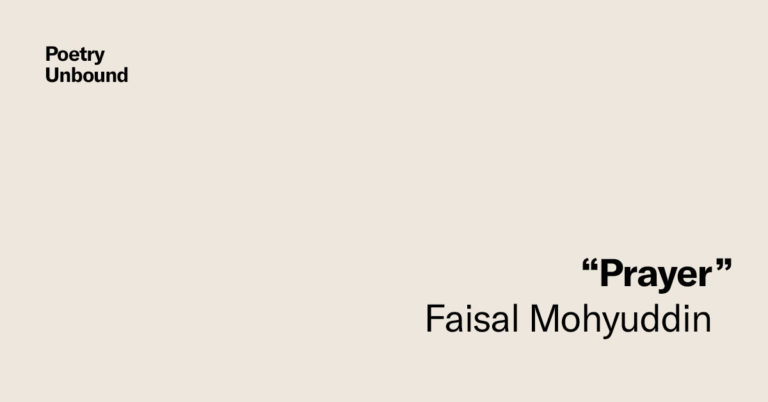
Me, I, and Myself Image by Mohamed Adel/Flickr (CC BY-SA 2.0), Some Rights Reserved.
Repelling Evil with Something Lovelier in a World of Hurt
How does one respond virtuously to being insulted?
This question has been on my mind and in my heart a lot the past few weeks. It arose first with the cartoons depicting the Prophet Muhammad that many Muslims (including me) found offensive and insulting. It arose again, forcefully, during the horrific assault on the Charlie Hebdo offices and the Jewish market. It arose a third time even closer to home during the brouhaha at my own university, Duke University, around the decision (first) to allow the call the prayer to be broadcast from the Chapel and (then) to “reconsider” that decision.
The “reconsideration” of what had been a generous celebration of our pluralism happened after the university came from vitriolic attacks from Rev. Franklin Graham, who somehow managed to make a connection between the community of students, faculty, and staff at Duke and Muslim terrorists of ISIS and Boko Haram who are “raping, butchering, and beheading.” Graham called on his supporters to withhold their donations to Duke University.
How does one respond to such insults? And how do we respond to insult virtuously?
I am not talking about having to collapse one’s message into media-friendly sound bites, though I’ve had a baptism by fire of sorts, being reminded by journalists that I have to take my lovely long sentences and break them into ever-shorter, TV-segment-friendly punch lines.
Other friends remind me that nuance and subtlety today have to be crammed into Twitter-friendly, 140 character tidbits:
» #nuance, #compassion
» #subtlety, #Ijustcantdoit
» #ThoseofuswhowereraisedwiththesoundsoftheQuranandpoetryandthesermonsof
MartinKingjustcannotandwillnotfitoursonginto140characters.
So how we respond? And how do we not simply return heat for heat, violence for violence, bluster for bluster? How do we bring some light into this world, which is sorely in need of illumination and compassion?
To search for answers, I have been thinking of the Qur’an, of the Prophet Muhammad, and of W.E.B. Du Bois, diving into these deep oceans of wisdom, seeking the very water of life while standing in the midst of the flame. I give thanks to God for these folks, thanks to God for their example, thanks to God for the tradition that produced them, and thanks to God for everyone who has poured their love into them, making them into who they are.
I’ve been thinking of the Qur’an, which tells us in no uncertain terms to “repel evil with something lovelier.” Much of what we see in this world, the violence, the hatred, the willingness to assault human lives and human dignity, is evil. That evil is real. The bigotry is indeed real.
How do we respond?
The notion of not responding to evil in kind, but to repel it with something lovelier, is challenging and difficult, but lovely and urgently needed spiritual advice. It is not easy, never easy, but in a world that is already drowning in ugliness it seems more than good to respond to darkness with light, to hatred with love, to loud insanity with compassionate wisdom.
It is essential.
To search for virtuous answers, I am also thinking of the Prophet himself, whose own honor and whose own life was under assault again and again. He insisted that he would not take revenge. He would not punish those who had persecuted him but, instead, would set a paradigm of forgiveness and dignity. As he said so often, he was sent as a mercy to all the worlds. How I wish for all of us who were and are offended by these daily mockeries of Muhammad to start by embodying Muhammad’s own virtue. Who’s mocking Muhammad? Yes, it is Charlie Hebdo and a thousand and one bigoted polemicists, but it is also ISIS, Boko Haram, the Taliban, and the Wahhabis — the very groups who have taken the beautiful teachings of the Prophet and rendered it into something unrecognizable and indeed monstrous.
Because I am also an American, because my own moral imagination is shaped by the Qur’an and Muhammad, but also by the powerful resistance of those who have fought and struggled to make this place what it is now, I am also thinking of the late W. E. B. Du Bois.
We know Du Bois as the great and eloquent voice beyond The Souls of Black Folk.
I also remember him as an elder statesmen who at the age of 89 responded with these wise and prophetic questions he had posed to all of us:
“How shall Integrity face Oppression?
What shall Honesty do in the face of Deception,
Decency in the face of Insult,
Self-Defense before Blows?
How shall Desert and Accomplishment meet Despising, Detraction, and Lies?
What shall Virtue do to meet Brute Force?
I keep reflecting on what Du Bois calls us to: integrity, honesty, decency, and virtue. Integrity and virtue sometimes look to be in short supply in today’s world. Du Bois’ questions, indeed his moral challenge to each and every single one of us, acknowledge that in this world there are blows, detraction, brute force, oppression, insult, and deception.
Yes. These too exist, and are part of today’s world. At times they seem to have the upper hand in terms of power, though never in terms of soul force. Du Bois goes on to talk about that there “such differences for those on the one hand who meet questions similar to this once a year or once a decade, and those who face them hourly and daily.” None of us have a monopoly on virtue, and none of us have a monopoly on suffering.
I am and remain a “prisoner of hope,” to quote the lovely quote from Zechariah 9:12 that Rev. William Barber and Cornel West remind us of again and again. And yet hope should never be confused with cheap optimism, wishfully thinking that things are fine, or that they are going to be fine. Never shall we give in to the illusion that things are going to somehow magically get better with the passage of time. No, it is always and only through virtuous struggle and righteous resistance that insult is overcome, and virtue reigns supreme.
No, every bone in my body tells me that we are entering a dark and difficult day in our shared human history, an epoch in which our accumulated wealth and technological knowhow will not save us. Every insight in my soul cries out that the insults, deceits, deceptions, oppression, and blow will come not once a decade, not once a year, but daily and hourly.
Can we muster up the courage to respond with virtue, integrity, honesty, and decency?
Can we be Muhammad-like, and be a mercy onto all creation?
Can we repel evil with something lovelier?
Can we be a channel of compassion?
Or will we so give in to deceit and deception that we will commit horrific atrocity, thinking that we have defended and even avenged the honor of Muhammad, the honor of those on the margin of society?
May we hang on to decency in face of insult, may we cherish our own integrity in face of oppression, may we confront deception with honesty, and may we insist on virtue even while confronting brute force.
May God have mercy on us,
May we have mercy on each other,
May we have mercy on our own souls.


Share your reflection